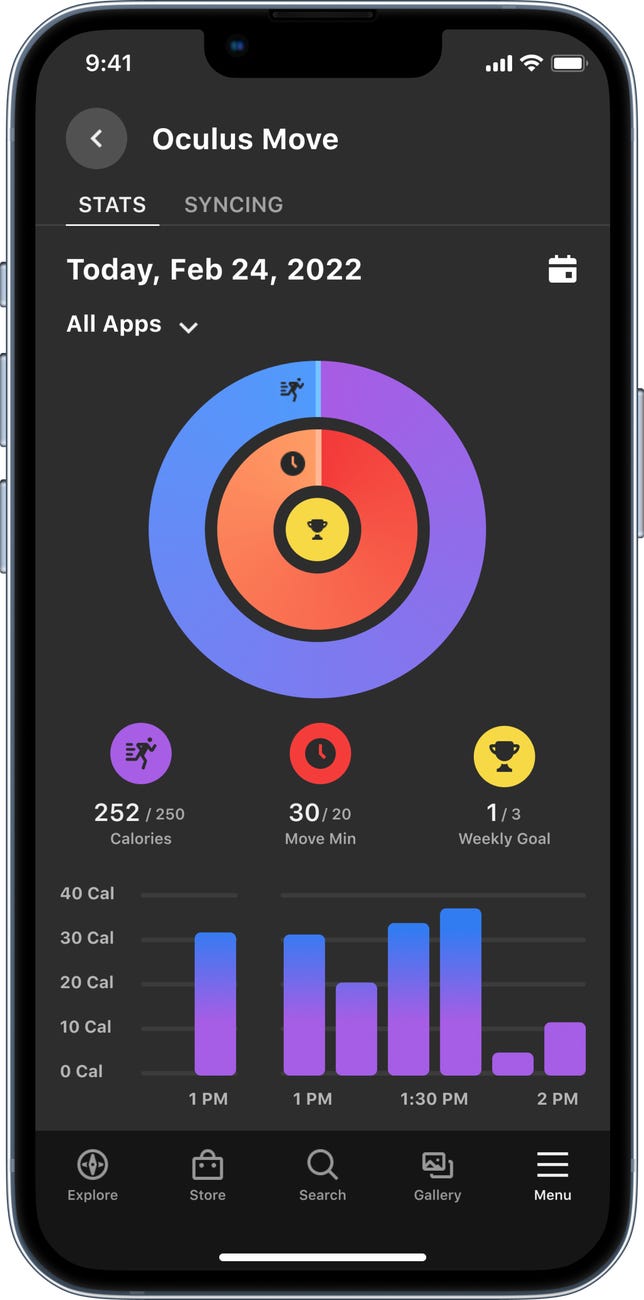
The Quest 2 will be able to sync its fitness data with Apple Health and the Oculus phone app.
Scott Stein/CNET
The Quest 2 VR headset already tracks workouts and can be a surprisingly effective fitness tool. And soon enough it will sync Oculus Move workout data with Apple Health as well as with the Oculus phone app.
Announcing the news Thursday, Meta said the changes are happening next month. The tech conglomerate, formerly known as Facebook, also acknowledged that it’s looking at integrating with “other fitness platforms” in the future.
Though syncing with Apple Health requires an iPhone, the Oculus phone app will work on both iOS and Android. However, syncing fitness data with the phone app means authorizing the Quest to store that data in Meta’s cloud, which is a shift from how Meta had previously handled such data on its VR headset. Meta promises the fitness data will be stored in an encrypted state that won’t be used for targeted ads. The data on existing Quest headsets using Move is stored locally, on the headset.

The phone app has a familiar fitness-tracker style.
Meta
The app layout for Move on the Oculus app looks similar to Apple’s Fitness app, with two goal rings for daily estimated calorie burn and total move minutes (minutes moving while using VR). The activities are also exported under the category of “Fitness Gaming” to Apple Health. The Oculus app will now sync with Health if you grant it permissions to export the data.
The Quest 2 can currently pair with Apple Watches in Supernatural, a subscription fitness app that Meta acquired last year. You can also wear a fitness tracker while working out in VR and record the data separately. But the Oculus to Apple Health syncing means you could use the VR headset more like a fitness tracker, without a watch or fitness band. While the Quest 2 doesn’t track heart rate, it can record movement via both the headset and controllers in order to calculate a (less accurate) guess at exertion.
This is yet another fitness-related step for Meta, a company that’s reported to be working on its own smartwatch. It’s possible that this move could align with a future Meta wrist device for VR and fitness tracking. In the meantime, it’ll likely be helpful for anyone using the headset for workouts, provided you’re already using an iPhone and are fine with Meta being a part of your fitness regimen.
The information contained in this article is for educational and informational purposes only and is not intended as health or medical advice. Always consult a physician or other qualified health provider regarding any questions you may have about a medical condition or health objectives.




